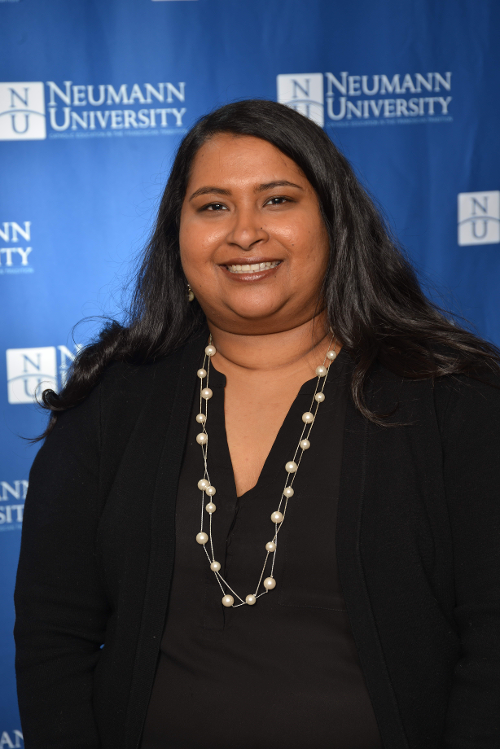
Prioritizing mental wellness is essential to living a well-balanced and well-adjusted life. In today’s often tumultuous world, it is sometimes essential to seek professional mental health assistance to ensure that you’re caring for yourself the best way you can.
Clinical mental health counselors are tasked with providing their clients with the strategies to maintain positive mental health, from establishing healthy behaviors to developing the tools to heal from negative or even traumatic events.
Today, careers in clinical mental health counseling have never been more important to pursue.
But with so many different types of mental health challenges and various settings in which therapy is conducted, it can be hard to know where to begin when pursuing a career in clinical mental health counseling.
Keep reading to explore facets of careers in clinical mental health counseling, from where counselors work to what types of clients they support, plus some industry information related to job outlook and salary.
Where do mental health counselors work?
Clinical mental health counselors are staples of their communities, from academic settings to more formal healthcare environments like hospitals. Let’s break down some of the typical counseling jobs and places clinical mental health counselors work:
Mental health agencies and private practices:
Counselors work in agencies to provide one-on-one and group therapy sessions. They help provide accessible, much-needed care and specialized practice to their communities.
Some clinical mental health counselors work at private practices, where they may have a more consistent and dedicated client base, especially in cases that need longer-term care and assessment. Within private practices, counselors sometimes specialize in one specific type of counseling or clientele, such as trauma counseling.
Faith-based counseling organizations:
At faith-based organizations, counselors can more fully integrate spirituality within their practice, providing care that addresses mental, emotional, and spiritual needs.
Academic institutions:
At academic institutions, clinical mental health counselors assist students, staff, and faculty with mental health needs. From the stress involved when juggling a variety of projects as a student, to the stress of managing a classroom as a teacher, to the pressure of creating a safe environment for learning as administrative staff, academically stationed clinical mental health counselors engage with it all.
Hospitals and other health institutions:
At hospitals and other health institutions, clinical mental health counselors work in tandem with medical doctors to supplement the care for patients' needs. Many serious illnesses or injuries also take a mental and emotional toll on patients, so clinical mental health counselors work to provide holistic client care.
Rehabilitation programs:
Within rehabilitation programs, clinical mental health counselors work with those recovering from or struggling with addiction. They work to provide alternatives to the substances or patterns their clients struggle with, and they provide support during the journey to overcome addiction.
What are the types of clinical mental health counselors?
Just as there are many specific areas where clinical mental health counseling can occur, there are various types of specialties that clinical mental health counselors practice. We’ve broken down a few of the more common ones below:
Substance abuse counselors:
Typically working in rehabilitation centers and hospitals, counselors who work with clients suffering from substance abuse know the psychological and emotional patterns of addiction. They help clients find the root of their habits and give their patients the tools to work through triggers and avoid relapses.
Marriage and family therapy counselors:
Marriage and family counselors help with home-related conflicts and how these conflicts extend past the home. They may work at private practices or agencies and may specialize in particular family issues, such as parent-child relationships, premarital counseling, or whole-family care..
Behavioral counselors:
This type of counselor specializes in treating the patterns and actions clients desire to change, such as eating or anxiety disorders. By focusing on the problematic behavior and the environmental factors surrounding it, behavioral counselors guide clients into creating a holistically healthier life for themselves.
Clinical mental health counseling jobs and salary:
Clinical mental health counseling salary ranges based on location and experience level.
Here’s a modified breakdown of clinical mental health counseling salary by state:
Pennsylvania, average salary — $61,950 to $79,250
Delaware, average annual salary — $129,450
Washington D.C. and Maryland, average salary $92,450 to $103,190
Virginia, average salary — $105,460 to $143,150
According to the Bureau of Labor Statistics, the job growth for marriage and family counselors in particular is expected to rise 16 percent by 2030, with an increase of 12,000 jobs. Meanwhile, the job growth for substance abuse, behavioral disorder, and clinical mental health counselors is expected to grow by an astounding 23 percent, or about 75,000 new jobs by 2030.
What options are there for a degree in clinical mental health counseling?
Neumann University houses a Master of Science in Clinical Mental Health Counseling that offers a holistic view of counseling. We teach our students to see the sacred in ordinary experiences and believe in integrating psychology and spirituality in a rigorous, informed, and clinically responsible way.
Our full-time students seeking the Master of Science in Clinical Mental Health Counseling students typically graduate in three years.
Develop the sought-after skills to treat your community with care through clinical mental health counseling.
The need for passionate and service-oriented clinical mental health counselors is evident. These individuals must be highly qualified and expertly trained in order to meet the needs of the present-day and in order to anticipate the challenges of the future.
If you’re ready to help your community receive competent and compassionate clinical mental health counseling care, begin your journey at Neumann University.
Want to meet with one of our expert staff? Schedule a meeting to get all your questions answered. You can also request more information or apply today.
 CHALLENGE
CHALLENGE

![[NU] CMHC eBook Cover_Clinical Only Final](https://learn.neumann.edu/hs-fs/hubfs/%5BNU%5D%20CMHC%20eBook%20Cover_Clinical%20Only%20Final.jpg?width=350&name=%5BNU%5D%20CMHC%20eBook%20Cover_Clinical%20Only%20Final.jpg)










